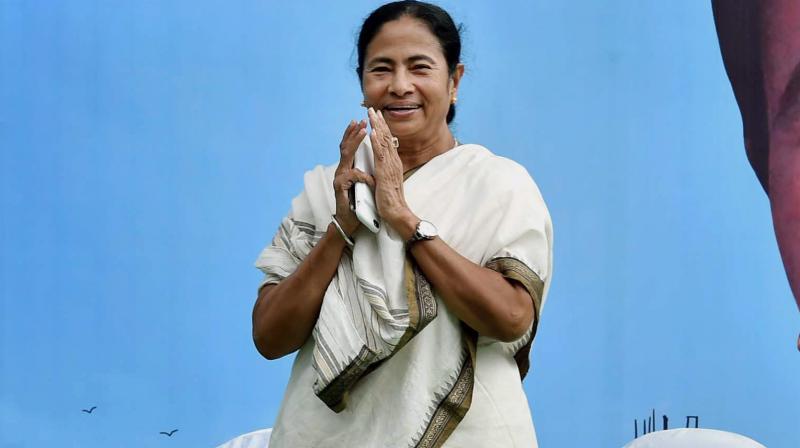In May 2011, the Hon’ble Chief Minister, Mamata Banerjee, established efficient governance in Bengal, with the Government of Maa, Mati, Manush. On May 27, 2016, through a historic verdict, the Government was sworn in for the second time in a row.
On the anniversary of this historic day, the Government of Maa, Mati, Manush rededicates itself to the service of people.
In the last seven years, Bengal has witnessed phenomenal growth in development and prosperity. Today, due to the unfaltering efforts of the State Government, Bengal ranks number 1 nationally, in multiple spheres.
The present day Government has achieved comprehensive development in multiple sectors including education, health, agriculture, industry, transport, culture etc. The State has set a shining example in maintaining communal harmony.
Bengal is no. 1 in the country with respect to the following:
• Generation of man-days and expenditure under the ‘100 Days’ Work’ scheme
• Construction of rural houses and establishment of rural connectivity
• Sanction of loans for the minorities as well as scholarships for minority students
• Provision of loans for Micro, Small and Medium Enterprises (MSME)
• Skill Development
• Ease of Doing Business
• Transparency in work and highest number of contracts allotted via e-tendering
Awards and accolades received by the State:
• The ‘Kanyashree’ scheme of the State conferred with the 1st prize in the United Nations Public Service Award category
• The State’s ‘Kanyashree’ scheme conferred with the ‘National e-governance Award’
• The significant role of gram panchayats, with respect to Decentralised Planning, awarded by the Government of India
• ‘Skoch Smart Governance Award’, in the sphere of health services, for the innovative practices of ‘Fair Price Medicine Shop’, ‘Diagnostic Centre’, as well as for the provision of ‘Critical Care Facility’ below the district level
• ‘Krishi Karman’ award in agriculture for 5 consecutive years
• Declared as the ‘Best State’ at the ‘All India Skill Competition’ for 3 years
• ‘Tantuja’ conferred with National Award for ‘Marketing in Handloom Products’ and appreciated by ‘NITI Aayog’
• Award by ‘IPPAI’ for the electrification of rural households
• ‘Skoch Smart Governance Award’ in the labour sector
• 6 municipalities of the State honoured with the ‘International C-40 Award’ for solid waste management
• Received the first prize for ‘Chhau Dance’ of Bengal the Republic Day Parade in one year, while bagging the first prize for tableau of ‘Bauls of Bengal’ in another year
• CSI-Nihilent Award for i-Budget and e-Governance. Bengal is the first State to introduce online payment through e-Kuber of RBI and the Human Resource Management System
As we complete a journey of seven years, we pledge anew to serve the people of the State to ensure holistic development, with unwavering passion.










